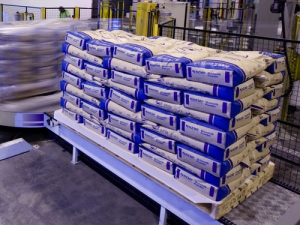Record $10/kgMS milk price forecast means extra cash for Fonterra farmers
A record $10/kgMS opening forecast milk price for the new season means more money into Fonterra farmers pockets early, says Federated Farmers dairy chair Richard McIntyre.
 Long-dated contracts on whole milk powder and skim milk powder prices are showing signs of improvement.
Long-dated contracts on whole milk powder and skim milk powder prices are showing signs of improvement.
Milk payout will improve next season, but cashflow will remain tight on farms, say market analysts.
Long-dated contracts on whole milk powder and skim milk powder prices are showing signs of improvement; BNZ is sticking to its forecast of $6/kgMS for the 2015-16 season; ANZ is predicting a milk price of $5.50-$5.75/kgMS.
Last week, the Global Dairy Trade price index dived 3.6%, its third consecutive drop. WMP prices are down 4.3%, compared to the previous auction, SMP prices down 7.8%.
Fonterra will announce its opening forecast for the new season late next month.
BNZ economist Doug Steel says it’s hard to predict what Fonterra will forecast. “Forecasting international dairy prices in the current market is tough; forecasting what Fonterra’s forecast will be is even tougher,” he told Rural News.
Steel expects Fonterra to base its forecasting payout on forward contracts. He points out that in last week’s auction late dated contracts pricing was encouraging.
For WMP sold in June, Fonterra got $2415/t; however for September 15 contract it got $2478/t and for October 15, $2538/t.
For SMP, Fonterra got about 6% more for contracts sold in September and October.
ANZ economist Con Williams believes SMP and WMP prices will improve in the coming months. Uncertainty over milk production in Europe, where quota restrictions expired on April 1, looms large, he says.
“Right now the world is well stocked with milk and there are questions around supply out of the EU. Buyers are thinking there will be more supply and those who have enough products are adopting a wait and see attitude.”
Williams says increased SMP and butter out of Europe are pushing prices down for those two products. Butter prices dropped 6.6% in last week’s auction.
Williams says the recent dives in dairy prices are not surprising. He predicts 2015-16 will be tougher than this season. “Farmers will be mindful of spending; they will cut back on discretionary and non-compliance spending,” he told Rural News.
Several factors are behind the spate of drops in global dairy prices.
The jury is still out on whether European farmers will produce more milk now that milk quotas have gone.
BNZ economist Doug Steel says the weak Euro is also impacting prices. Six months ago, the Euro was trading at US$1.30; it’s now down to $US1.07, making EU products more competitive on the world market.
China’s economic growth is also slowing and affecting demand for dairy products there. And international grain prices remain low. Steel says this means low input costs for farmers in the northern hemisphere, so “the economics of making milk is cheaper for these farmers”.
One team with 43 head, including a contingent from Mid Canterbury, are reflecting on a stellar NZ DairyEvent.
Fonterra farmer shareholders have approved the mechanism for a $2/share capital return expected from the sale of its global consumer and associated businesses.
Trainees in the horticulture industry studying towards a certificate or diploma can now apply for Horticulture New Zealand's (HortNZ) 2026 Industry Training Scholarships programme.
OPINION: The first three Global Dairy Trade (GDT) auctions have been a morale booster for farmers.
Former Fonterra executive Alex Turnbull has been appointed CEO to lead all five Yili Oceania Business Division companies in New Zealand.
Fonterra executive René Dedoncker is leaving the co-operative later this year to lead Australian agribusiness Elders.

OPINION: Here w go: the election date is set for November 7 and the politicians are out of the gate…
OPINION: ECan data was released a few days ago showing Canterbury farmers have made “giant strides on environmental performance”.